Iran Regime Keeps Sealing Shops, Malls In Which Hijab Not Observed
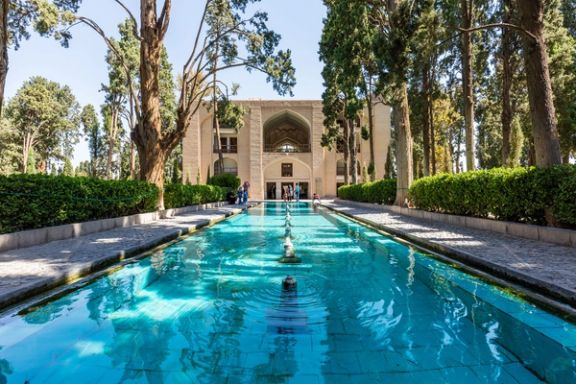
Dozens of shops and malls in which Iranian women continue to flout the regime’s mandatory hijab rules have been closed down across Iran with dozens more women arrested.

Dozens of shops and malls in which Iranian women continue to flout the regime’s mandatory hijab rules have been closed down across Iran with dozens more women arrested.
As the regime fights a losing battle against the wave of women bravely participating in a nationwide hijab rebellion, the tide against oppression continues.
In Kashan, Esfahan (Isfahan) province, Karim Ahmadi, an IRGC commander, said more than 40 shops have been shut down for their customers not complying with Islamic dress code.
Meanwhile, upon the order of the city prosecutor, Kashan Mall, the largest commercial and tourism center of the city has also been sealed for mass breaking of the compulsory hijab rule.
A video from Kermanshah in the west shows the staff of Taq-e Bostan historical complex preventing women without the headscarf from visiting the ancient monument.
In the southern Khuzestan province, Dezful's prosecutor, Mehdi Amadeh said "one of the city’s tourist sites has been sealed since Friday due to non-compliance with moral standards".
As women across Iran defiantly dance in public as protest against female oppression, Amadeh also said, “While not observing the hijab, some women also danced without the veil.”
On Thursday, the Dezful prosecutor announced several people have been arrested on charges of embarking on a tour in the Dez Lake area and "norm breaking" during the event. Government authorities are not backing down on this issue. On Saturday, President Ebrahim Raisi declared the compulsory hijab "obligatory" adding that "it is a religious necessity”.
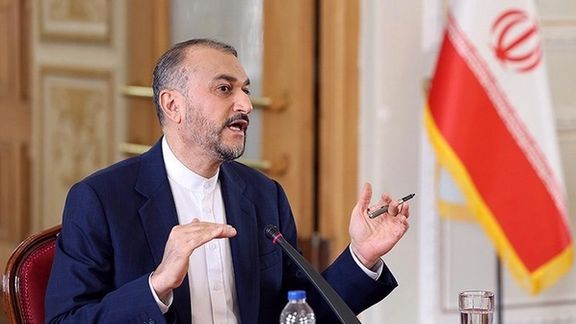
Iran’s foreign minister says within the next 48 hours he will have a phone conversation with his Saudi counterpart to confirm the date and venue of their expected meeting.
Hossein Amir-Abdollahian made the comments on Saturday on the occasion of the national flag day.
Following the recent agreement between Iran and Saudi Arabia in Beijing to resume diplomatic relations and reopen embassies and consulates, Amir-Abdollahian and his Saudi counterpart, Faisal bin Farhan, had two phone conversations. During their second phone call, it was agreed that the two foreign ministers hold a meeting in the fasting month of Ramadan.
Iranian foreign minister further claimed that the Islamic Republic “owes its legitimacy to the great people of Iran, and the key to the stability of the Islamic Republic is the continuation of such legitimacy and the vote of people.”
“In the past forty-four years, the enemies made many efforts to incur their enmity against the Islamic Republic…and the holy flag of Iran. However, hoisting of Iranian flag after 44 years proves the failure of their policy and…the heart-felt interest of Iranians all over the world for the great and Islamic Iran,” he added.
His statements come as the Islamic regime has been facing a more serious legitimacy crisis over the past six month with mass protests across the country with people clearly calling for the ouster of the regime.
He also talks of heart-felt support of Iranians across the world as tens of thousands of Iranian living abroad have repeatedly staged protests in different cities of the world to condemn the brutality of the regime which killed over 500 protesters and wounded many more since the death of Mahsa Amini in police custody in September.
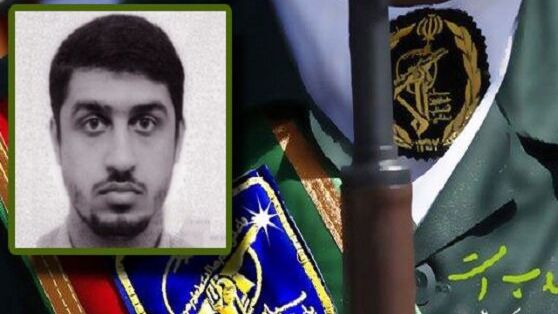
Israel attacked targets for a third time in four days in Syria hitting two bases where Iranian forces operate in Homs province early on Sunday.
Syria’s defense ministry announced the attacks without providing much detail, while Western intelligence sources told Reuters the strikes hit a series of air bases in the central region of the country where Iranian forces are based.
Meanwhile, media close to the Revolutionary Guard in Tehran reported that a second officer described as a military adviser, who was wounded in a similar attack on Friday died of his injuries.
"Meqdad Meqdani (Meghdad Meghdani) was wounded during the Zionist attack on Friday dawn and was martyred," Mehr news affiliated with the IRGC said.
On Friday, IRGC announced the death of an officer in one of the earlier Israeli attacks. "The Islamic Revolutionary Guards Corps has announced the martyrdom of guardsman Milad Haydari, one of the IRGC's military advisers and officers, in the criminal attack of the Zionist regime on the outskirts of Damascus at dawn today," the media quoted an IRGC statement, which also threatened revenge.
Iran usually does not report the extent of its casualties in Syria and some observers say that acknowledging the deaths of two IRGC personnel can be a sign of Tehran’s plan to retaliate against Israel to avenge the blood of “martyrs.”
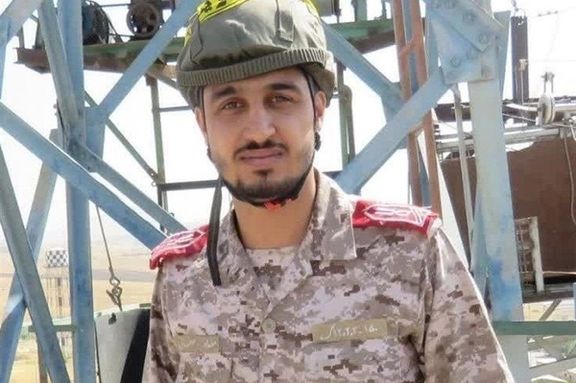
Israel, which rarely acknowledges attacks in Syria has not commented so far on this week’s strikes.
Israel launched "an aerial aggression from the direction of northwest Beirut targeting some outposts in Homs city and its countryside at 00:35 a.m.", the Syrian defense ministry said in a statement on state media.
Iran says its officers serve in an advisory role in Syria at the invitation of Damascus. Dozens of Revolutionary Guards members including senior officers have been killed in Syria during the war.
A war monitoring group based in London reported that this was the 9th Israeli attack in 2023. “Explosions were heard and fire broke out in the scientific research area in Khirbat Al-Tain,” the Syrian Observatory for Human Rights (SOHR) said. Positions in Al-Qasir area and Al-Daba’a military airport were also hit, where ambulances rushed amid reports of casualties.
SOHR added that according to “reliable sources” five Revolutionary Guard officers, including a senior commander, were killed in the first Israeli strike in Damascus on Thursday.
Reuters quoted wo Western intelligence sources who requested anonymity due to the sensitivity of the matter said the rocket strikes targeted the T4 air base located west of the ancient city of Palmyra, and al Dabaa airport near al Qusayr city near the Lebanese border, an area with members of the Iranian-backed Hezbollah.
Israel has intensified strikes in the last year on Syrian airports and air bases to disrupt what it says is Iran's use of aerial supply lines to deliver arms to militias.
According to Reuters, Western intelligence sources have said Iran is increasingly using several civilian airports to deliver more arms, taking advantage of heavy air traffic as cargo planes offload relief aid following February's deadly earthquake.
In March Israel targeted the airport in the northern city of Aleppo where Iran said it was delivering aid for earthquake victims, but Israel characterized the flights as military in nature disguised as assistance.
Meanwhile Fars news agency in Tehran, also affiliated with the Revolutionary Guard reported that memorial services in Iran and Syria will be held for the first officer, Milad Haydari.

Medicine shortages and rising prices have already been grave in Iran but now officials say the situation will aggravate in the coming months.
Masoud Pezeshkian, the representative of Tabriz at the parliament and a member of the medical and healthcare committee, said Saturday that the drug manufacturers in the country cannot import the raw materials to produce medicines due to the elimination of the government’s subsidies.
Parliament approved the government’s decision to scrap an annual $9-14 billion subsidy for essential food and medicines in March 2022, despite warnings of more inflation and hardship. The idea to eliminate the subsidy emerged after hardliner president Ebrahim Raisi assumed office earlier in the year in August, counting on support from conservatives and ultra-conservatives in control of the parliament.
“Medicines will become more expensive this year, and because medicine manufacturers do not have the necessary funds to import the raw material for drug production, they may not be able to produce as much medicine as the population needs, so we will also face a shortage of medicine,” Pezeshkian said.
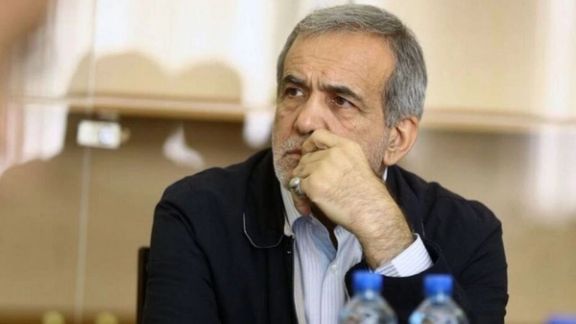
Criticizing the administration for not providing the necessary funds to import medicine, he added that the inflation was so high in the previous Iranian year that people could not afford to buy medicines anymore. The Central Bank of Iran announced last week that the annual inflation rate stands at 46.5 percent, among the highest in Iran in more than 30 years. Iran’s rial fell to more than 600,000 in late February from 300,000 in late August. Although the national currency bounced back to about 540,000 it is still down about 50 percent compared to six months ago.
His remarks echoed earlier statements by officials such as lawmaker Hosseinali Shahriari, who warned in March that "the financial resources foreseen in the budget bill for the next Iranian (which started March 21) year are not sufficient at all... we will face problems regarding medicines and medical equipment.”
Taghi Naghdali, a member of the parliament's judicial and legal committee, said in September that without allocation of cheap foreign currency to pharmaceutical imports the government's Medicine Assistance Plan is bound to fail. Health Minister Bahram Eynollahi, who always tries to downplay the severity of the situation, had called the plan “a miracle” in its early days but announced in January that the government faces a deficit of about 360 trillion rials (about $7 billion in today’s exchange rate) for supplying the needed medicines. Eynollahi also claimed that drugstores are full of medicines and only a few items are not available.
Mohammad Reza Afkhami, Secretary of Khorasan Razavi Pharmacists Association, warned last year that in addition to medications for special illnesses, some common medications like cold pills, acetaminophen, amoxicillin, distilled water, and syringes are scarce due to the government mismanagement. He added that many of the pharmacies are going bankrupt due to economic problems, noting that pharmacies are not separate from other guilds and are not in a good economic situation.
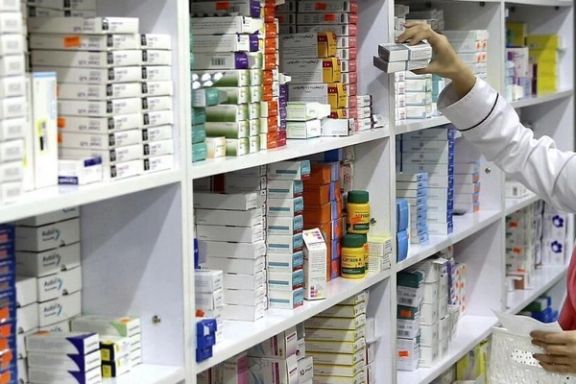
Homayoun Najafabadi, another member of the parliament's health committee, also said last year that the shortage and high prices of medicines are not limited to certain drugs anymore, and very common medications are also scarce and expensive. The deputy head of the Iranian Pharmaceutical Importers Association, Mojtaba Bourbour, said in January 2022 that the government’s claim of self-sufficiency in production of raw materials for medicine and pharmaceutical products is not true. “About 80 to 90 percent of the needed raw materials are imported from China and India," he said, adding that some medicines are imported from China but sold as made in Iran.
In the previous Iranian year, the medicine crisis intensified as people suffered from multifold price increases while many medicine items were not available in the market at all, pushing people to the black market fed with smuggled medicines.
The Islamic Republic has been claiming that United States sanctions prevent procurement of medicines, while Washington insists that humanitarian aid is exempt from sanctions and in fact, food, health and humanitarian products are not sanctioned. Iran has been importing more than $1.5 billion of medicines a year. Iran imports around 100 million euros of medicines a month just from Europe and also large quantities from China and India.
Considering the incessant bemoaning by the Islamic Republic’s officials about the effect of US sanctions on shortages of medicine in the country, there are speculations that the government is pleased with the psychological effects of the shortages on foreign audiences, wearing down a people already fatigued by months of revolutionary fervor.
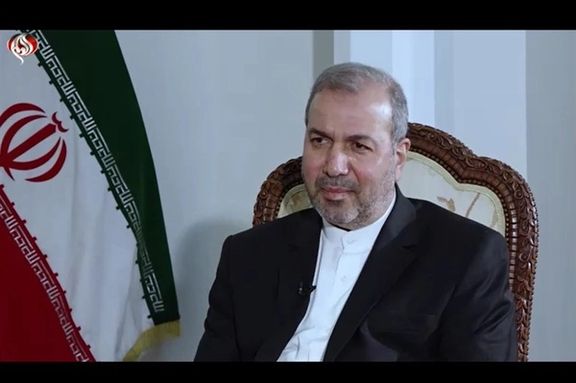
Iran's ambassador to Iraq claims the government of Baghdad owes Tehran 11 billion dollars for the import of Iranian electricity and gas.
Mohammad Kazem Al-Sadegh made the comments in an interview with an Iraqi network on Saturday adding that 80% of Iraq's water comes from Turkey and between 8-10% of it is provided by Iran.
Since introducing ‘maximum pressure’ sanctions and leaving the JCPOA in 2018, the US has threatened punitive action against any third party buying Iran’s oil or dealing with its financial sector.
Iraq is only allowed to pay for gas and electricity imported from Iran with Iraqi dinars. Baghdad transfers the money to the Central Bank of Iran in dinars through the Trade Bank, and Tehran is only allowed to use the money to import goods from the Arab country.
Due to the severe imbalance in bilateral trade and the unused assets of Iran's dinar due to the export of electricity and gas, the Islamic Republic considers it as the Iraqi government’s debt.
Al-Sadegh further added that the drought crisis in Iraq has nothing to do with Iran’s cutting of the flow of rivers to Iraqi soil.
The Iraqi government has repeatedly criticized Iran's cutoff of river flow and demanded negotiations with the Islamic Republic, but the Iraqi authorities say Tehran avoids negotiations regarding the issue.
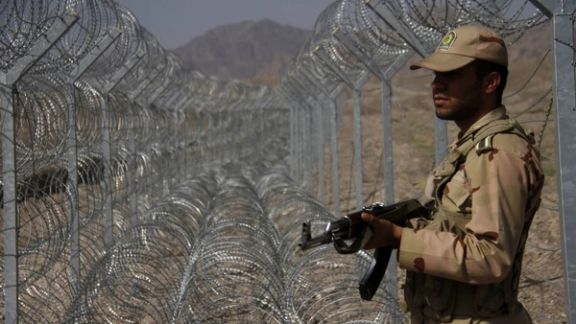
A group of Iranian assailants have killed four border patrol soldiers on Saturday, according to the Pakistani military.
The incident occurred in Kech district in southwestern Baluchistan province, which shares a long lawless border with Afghanistan and Iran, the latest incident at the site of sporadic skirmishes, with border patrols on both sides targeted.
The army stated that Pakistani officials were making contact with the Islamic Republic to seek ways of preventing such incidents in future. However, so far no one has claimed responsibility.
Last year, Iran and Pakistan announced the formation of a joint working group to look after border management, including security, trade and travel issues between the two countries in a bid to retain calm.
The area is blighted by a range of militant elements. In 2018, at least 14 Iranian security personnel, including intelligence officials belonging to Iran’s Islamic Revolutionary Guard Corps, were abducted along the border, increasing tension between the two countries. The abductions were claimed by armed group Jaish al-Adl, affiliated with al-Qaeda,
Insurgent ethnic Baluch nationalist groups are also active in the area, fighting for a greater share of regional resources. The Baluch groups operate on both sides of the border.
Pakistani officials blame regional rivals for the increase in violence in the vast province. Every government coming to power attempts to crush the separatist militants to address the grievances fueling violence in the region.